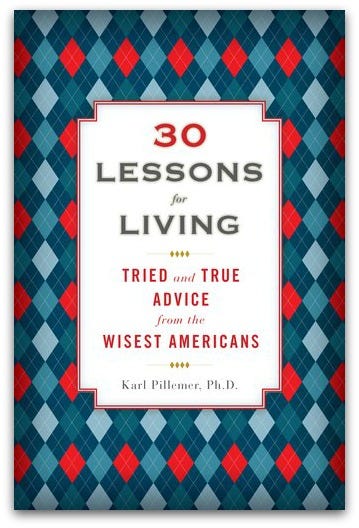Yet a day comes when a man notices that ….he belongs to time and by the horror that seizes him he recognizes his worst enemy, tomorrow.
– Albert Camus
“Do something to make your parents proud.” Unsaid but implicit in this directive was the coda, “for a change.” My grandmother was a spritely 99 when she wished me good luck upon my first move away from home, to begin my college days in Texas some 43 years ago. Born in 1878, Grammy was a wise and wrinkled sage who had seen much of the world, teaching English in Puerto Rico (it had just become a US territory) and home making skills to the young daughters of black share croppers in Alabama, before traveling as a lone and independent woman to the Sudan (New York to Marseille, then down around the African cape and up past the horn on a steamer) to marry my ScotsIrish grandfather who was tending to the Arab tribes near Khartoum during the Lawrence of Arabia era. The first shot of the first world war had not yet been fired.
She suffered fools (such her grandson) with patience but was not shy to offer advice. Unfortunately, I too quickly dismissed counsel from Grammy, from my parents, from anyone not of My Generation.
It is our loss that the advice of elders is not more regularly sought or highly valued. Only they can speak from experience on things like family and love, regrets, happiness, career choices, and the value of good health and well-being. Karl Pillemer shares this sentiment and set out to document the opinions and advice of older Americans, seeking common threads in the guidance they proffered. Pillemer is a Professor of Gerontology in Medicine at the Weill Cornell Medical College and directs the Cornell Legacy Project. He also authored 30 Lessons for Living, Tried and True Advice from the Wisest Americans.
While reading 30 Lessons for Living I was struck by how closely the opinions offered therein aligned with principles on happiness routinely proposed by 2 of the most-respected academics in that field. Martin Seligman and Mihaly Csikszentmihalyi preach deeper fulfillment through small moments and the savoring of simple pleasures, not extravagance and grandiosity. Self-determination, gratitude, lifelong personal development, respect for one’s health, community, and the pursuit of one’s passions NOW are all themes shared amongst these giants in the field.
In his seminal publication Flow, Csikszentmihalyi writes about peak experience when your deepest passions are pursued with your greatest natural strengths, and finding happiness through simple things: sight, taste, music, and mastering one’s body (sex and yoga being good avenues).
Seligman (the Yoda of academic research on positive psychology; for more go here) cites that people in the top 10% of happiness in his studies were invariably involved in romantic relationships, and that happier people have significantly richer social lives than their glummer counterparts. On the deception of the hedonic treadmill Seligman’s studies show that the more we attain, the more our expectations rise. The things we worked so hard to acquire no longer satisfy. In the words of my favorite hedonist Homer Simpson, “more please.”
There was consensus amongst Pillemer’s study participants on a number of themes, which he boiled down to the 30 lessons. Time is short so act on it now. Happiness is a choice. Stop wasting time worrying. Think small and be grateful for the small things you can enjoy. Savor life’s daily moments. Understand how much is enough and the difference between wants and needs. Walk on your tiptoes and look for the “aha” moments in everyday life, not the big things.
According to Pillemer, “not a single person out of a thousand said that to be happy you should try to work as hard as you can to make money to buy the things you want. Not a single person said it’s important to be at least as wealthy as the people around you, and if you have more than they do it’s real success. Not a single person said you should choose your work based on your desired future earning power.”
If you are overwhelmed by the volume of self-help tomes on the bookstore shelves today – Pillemer claims that over 30,000 have been published – you may want to opt for his beautifully simple addition. Also, the Legacy Project website at Cornell is updated daily with new stories and interviews. There is no agenda amongst his contributors to be edgy or nonconformist, to grab your attention and sell books and advice. They are simply telling it the way they see it after many moons on this earth, many joys lived and mistakes made.
I will close out with favorite quote from one of Pillemer’s many interviewees:
I came into this world with nothing, my experiences are only mine and I will leave this world with nothing. The only one I can change is myself.
Amen to that.
Oh, a final note on Grammy. She liked to keep a bottle of Four Roses bourbon in the freezer for her nightly nip. My saintly mother, the small-town doctor’s wife and teetotaling church deacon, would slip discretely down the alleyway behind Grammy’s apartment to the local liquor store and pick up Grammy’s favored tipple. Yes, and in a heavy paper bag please.
Damn, a final final note. I’ve decided to offer a Life Leap Workshop at no charge this fall, from my apartment in Aix-en-Provence. If you are in need of a total reboot and eager to pursue a richer, more purposeful life please consider joining us. We’ll set the final dates per attendees availability. Get in touch for more: bill@interprizegroup.com. Provence in autumn? C’mon, get over here.
This essay was adapted from a piece originally published in January 2012 and can be found here.






